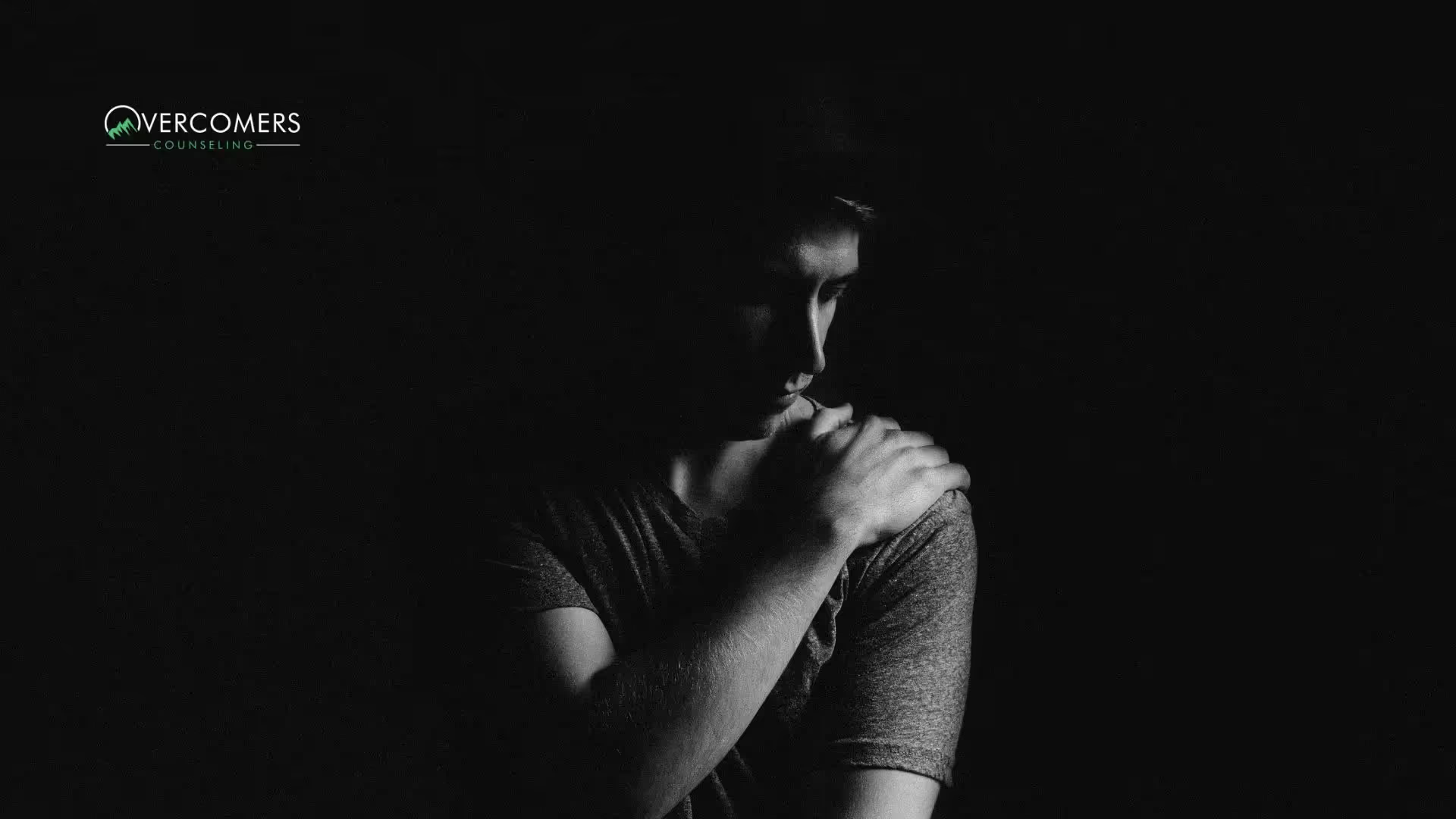Grief can be an overwhelming emotion, particularly when it is sudden or traumatic, leaving us feeling lost and unsure of how to move forward. This blog post...

Grief can be an overwhelming emotion, particularly when it is sudden or traumatic, leaving us feeling lost and unsure of how to move forward.
This blog post aims to provide practical strategies and compassionate advice to help you navigate through this difficult time.
We will explore various coping mechanisms, from mindfulness practices to creating personal memorials, all while emphasizing the importance of patience and self-care.
Remember, there's no 'right' way to grieve; everyone's journey is unique. Let's begin this exploration together and find ways to heal and honor our loved ones in our ways.
Acknowledging your loss is the first, and perhaps one of the most crucial steps, in dealing with traumatic grief.
It's important to understand that it's okay to feel pain and sorrow, as these emotions are a natural response to loss.
Suppressing or denying your feelings might lead to more harm than good in the long run. Allow yourself to grieve, cry, and feel the void that the loss has left.
This is not an indication of weakness but rather a sign of your humanity and your capacity to love.
y accepting and acknowledging your loss, you are making the first move to recovery.
If your grief feels too overwhelming to handle alone, it's perfectly okay and advisable to seek professional help.
Therapists and counselors are trained to help you navigate through your feelings, understand your grief, and provide tools to cope with the loss.
They can offer a safe and non-judgmental space for you to express your emotions, while also providing insight and perspective that you might not see on your own.
Remember, seeking help is not a sign of weakness.

Expressing your feelings is a therapeutic way to cope with traumatic grief.
It's crucial not to bottle up your emotions, but rather let them out through different mediums.
This could be talking about your loss with a trusted friend or family member, writing about your feelings in a journal, or even expressing yourself through art or music.
Articulating your emotions can bring relief and can help you understand your feelings better.
Remember, there's no right or wrong way to express your grief. Find a method that feels comfortable for you and allows you to reflect on your loss while also honoring your emotions.
Joining a support group can be an invaluable resource when dealing with traumatic grief.
These collectives offer an environment where you can link with individuals who are navigating through experiences akin to yours.
Sharing your feelings and hearing others' stories can help you feel less isolated and provide comfort in knowing you're not alone.
Additionally, these groups often provide practical advice and coping strategies that have worked for others.
Support groups can be found in your local community or online, offering the flexibility to engage in a way that's most comfortable for you.
Practicing self-care is essential when dealing with traumatic grief.
It's easy to neglect your own needs during this time, but it's crucial to remember that taking care of your physical and mental health can help you cope better.
This might include maintaining a balanced diet, getting regular exercise, ensuring you get enough sleep, and taking time each day to relax and do something you enjoy.
You could read a book, take a walk in nature, meditate, or listen to soothing music.
Remember, it's okay to take a break from grieving and do something that brings you joy or peace.

Mindfulness and meditation can be powerful tools in managing traumatic grief. Mindfulness refers to the act of being completely attuned and involved in our current activity, devoid of any disruptions or biases.
It's about being conscious of our thoughts and emotions but not allowing ourselves to be swept away by them.
Meditation can help us achieve this state of mind, providing a sense of calm and balance that benefits both our emotional well-being and our overall health.
Through these practices, you can learn to sit with your emotions without letting them overwhelm you, develop a deeper understanding of your grief, and find a peaceful space within yourself even amidst the pain.
Remember, it's not about eliminating grief or resisting it, but rather learning to live with it, acknowledging it, and permitting yourself to feel it.
Create a Memorial or Tribute
Creating a memorial or tribute can be a therapeutic way to cope with traumatic grief.
This act allows you to express your feelings and celebrate the life of the person you have lost in a tangible way.
A memorial could be anything from planting a tree, creating a photo album, writing a letter or poem, or even establishing a scholarship in their name.
It's a personal and meaningful way to keep their memory alive, while also providing a focus for your grief.
Not only does this offer a sense of closure, but it also serves as a symbol of your love and ongoing connection with the person who has passed.
Giving yourself time is an integral part of the healing process when dealing with traumatic grief.
Healing doesn't happen overnight, and it's important to remember that everyone grieves at their own pace.
There's no set timeline for grief, and it's perfectly okay to feel your emotions deeply, no matter how long it takes.
You might have good days and bad days, and that's completely normal. Try not to rush yourself or let others rush you through your grief.
Be patient with yourself, allow yourself to feel, and permit yourself to heal in your own time and in your way.
Remember, it's not about 'moving on' from the person you've lost, but rather learning to live with the loss and finding ways to keep their memory alive in your heart.
In conclusion, dealing with traumatic grief is a deeply personal and individual journey.
It's important to remember that there's no right or wrong way to grieve.
Whether it's through mindfulness and meditation, creating a memorial or tribute, or simply giving yourself time, the key is to find what works best for you.
Surround yourself with support from loved ones or professional help if needed, and allow yourself to experience your emotions fully.
It's not an easy process, and it takes time, but with patience and empathy, you can navigate through this difficult period and find ways to honor your loved one while also taking care of your well-being.
There is no "right" or "wrong" answer when it comes to how long grief will last in the elderly. For some people, the grieving process may last for several months or even years. For others, it may come in waves – they may have periods of intense grief followed by periods of relative calm. It's important to remember that everyone grieves in their own way and at their own pace.
If you find yourself having difficulty managing daily activities due to lingering feelings associated with grief such as sadness, anger, guilt or numbness; then it might be beneficial for you to seek professional help through our Colorado Springs Grief Counseling services. Our therapists are trained in helping clients identify their needs and goals related to grieving.
It's important to remember that you are allowed to grieve however you need to, and that doesn't mean you have to ruin the holidays for everyone else. If you need to take a break from holiday festivities, do so. Go for a walk, take a nap, watch a movie—whatever you need to do to take care of yourself. You can also try talking to your family about your grief ahead of time and asking for their understanding and support.
It is not mandatory that all conversations revolve around the issue causing your grief but our therapists will provide guidance on how best to process the situation. You are in control of how much or little you want to share in a session, but it is important to stay open and honest with your therapist for optimal results.
There are a variety of symptoms that can be associated with grief in the elderly. Some common physical symptoms include fatigue, changes in appetite, and difficulty sleeping. Emotional symptoms can include sadness, anger, anxiety, and guilt. It's also common for those who are grieving to withdraw from social activities and lose interest in hobbies or activities they once enjoyed.
Grief may feel worse at night because sleep disturbances are common during the grieving process. As nighttime falls, distractions diminish and we're left alone with our thoughts, which can make the loss feel overwhelming.